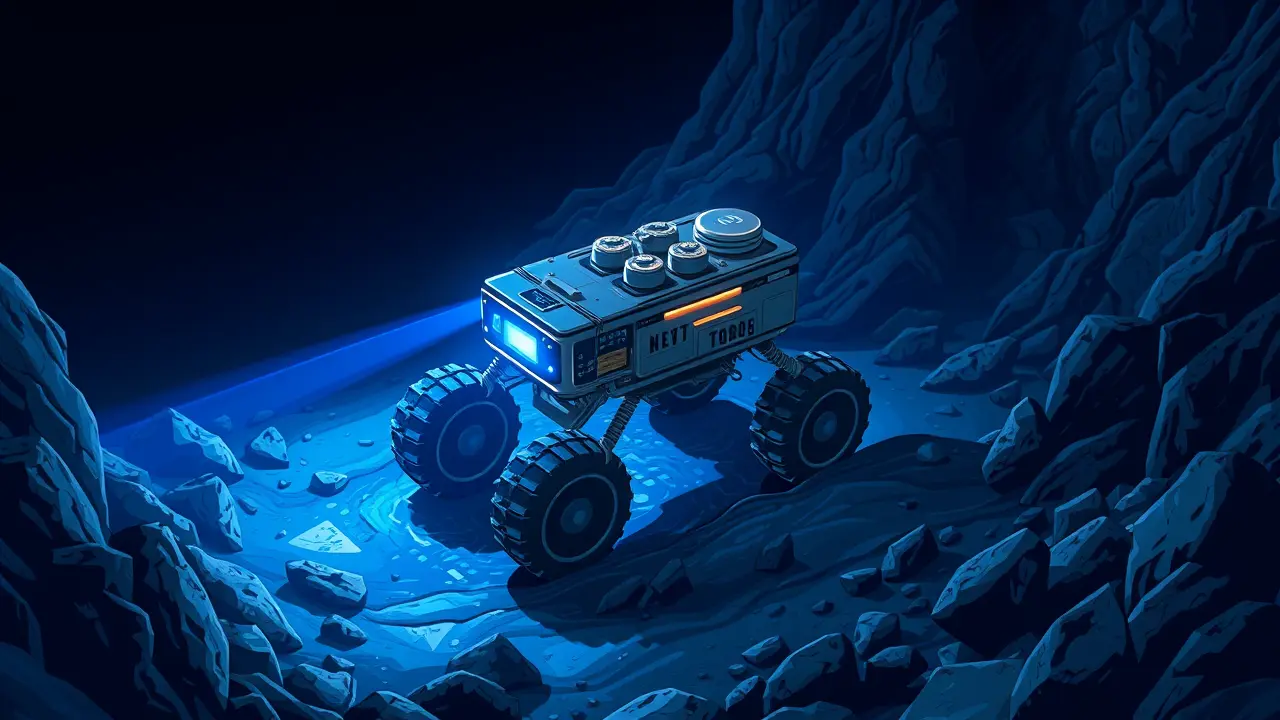
Scienceearth scienceOceanography
China Tests Deep-Sea Cobalt Mining Rover in Pacific Ocean.
TH
Thomas Green
5 hours ago7 min read2 comments
In a bold maneuver that pushes the technological and geopolitical frontiers of deep-sea exploration, Chinese scientists have deployed a sophisticated robotic mining vehicle to a remote Pacific seamount, plunging 2,000 meters beneath the waves into a realm of perpetual darkness and immense pressure. This wasn't merely a test; it was a statement of capability, conducted far beyond the strategic buffer of the second island chain—a string of US-aligned military bases—and squarely in the heart of an area coveted for its mineral wealth.The autonomous rover, a marvel of marine engineering, demonstrated a critical ability to navigate the treacherous, rugged topography of the seabed, a landscape littered with the very prize it seeks: cobalt-rich crusts. Its onboard intelligence allowed it to autonomously adjust its posture and gait in real-time, a necessary dance to avoid overturning on the uneven, sediment-shrouded slopes, a challenge that has scuttled many previous attempts at deep-sea mining.The mission's success in gathering critical performance data marks a significant leap in the global race to tap the ocean's mineral storehouse, an endeavor often compared to the early days of space exploration for its complexity and high stakes. The Clarion-Clipperton Zone, a vast abyssal plain between Hawaii and Mexico, is already the subject of intense international interest, with numerous contracts for polymetallic nodules, but this venture targets cobalt crusts on seamounts, a different and equally challenging resource.Cobalt is the lifeblood of our modern technological society, an essential component in the lithium-ion batteries that power everything from smartphones to electric vehicles, and its land-based sources are often mired in ethical and supply chain concerns. The deep sea presents a potential alternative, but it is an environment we are only beginning to understand.The potential ecological consequences are profound; these deep-sea habitats are among the most fragile and least explored on Earth, home to unique biological communities that have evolved over millennia in near-total isolation. The plumes of sediment stirred up by mining activity could smother these ecosystems for hundreds of kilometers, and the noise and light pollution would represent an unprecedented disturbance.The United Nations' International Seabed Authority (ISA) is currently grappling with the Herculean task of developing a regulatory code to govern this nascent industry, a process fraught with diplomatic tension between nations eager for resources and those advocating for extreme caution. China's rapid progress, therefore, is not just a technological achievement; it is a geopolitical move that accelerates the timeline for a global debate we are not yet ready to have. It echoes the vision of pioneers like Elon Musk who look to new frontiers for humanity's future, but it forces us to ask a critical question: in our quest to build a green future on land, are we willing to sacrifice the last great wilderness on our planet? The data streaming back from that dark, cobalt-laden seamount doesn't just tell us about a machine's performance; it forces a conversation about our priorities, our ingenuity, and the price we are willing to pay for progress.
#featured
#cobalt mining
#deep-sea robotics
#Pacific Ocean
#resource extraction
#autonomous vehicles
#China
#seabed exploration
Stay Informed. Act Smarter.
Get weekly highlights, major headlines, and expert insights — then put your knowledge to work in our live prediction markets.
© 2025 Outpoll Service LTD. All rights reserved.